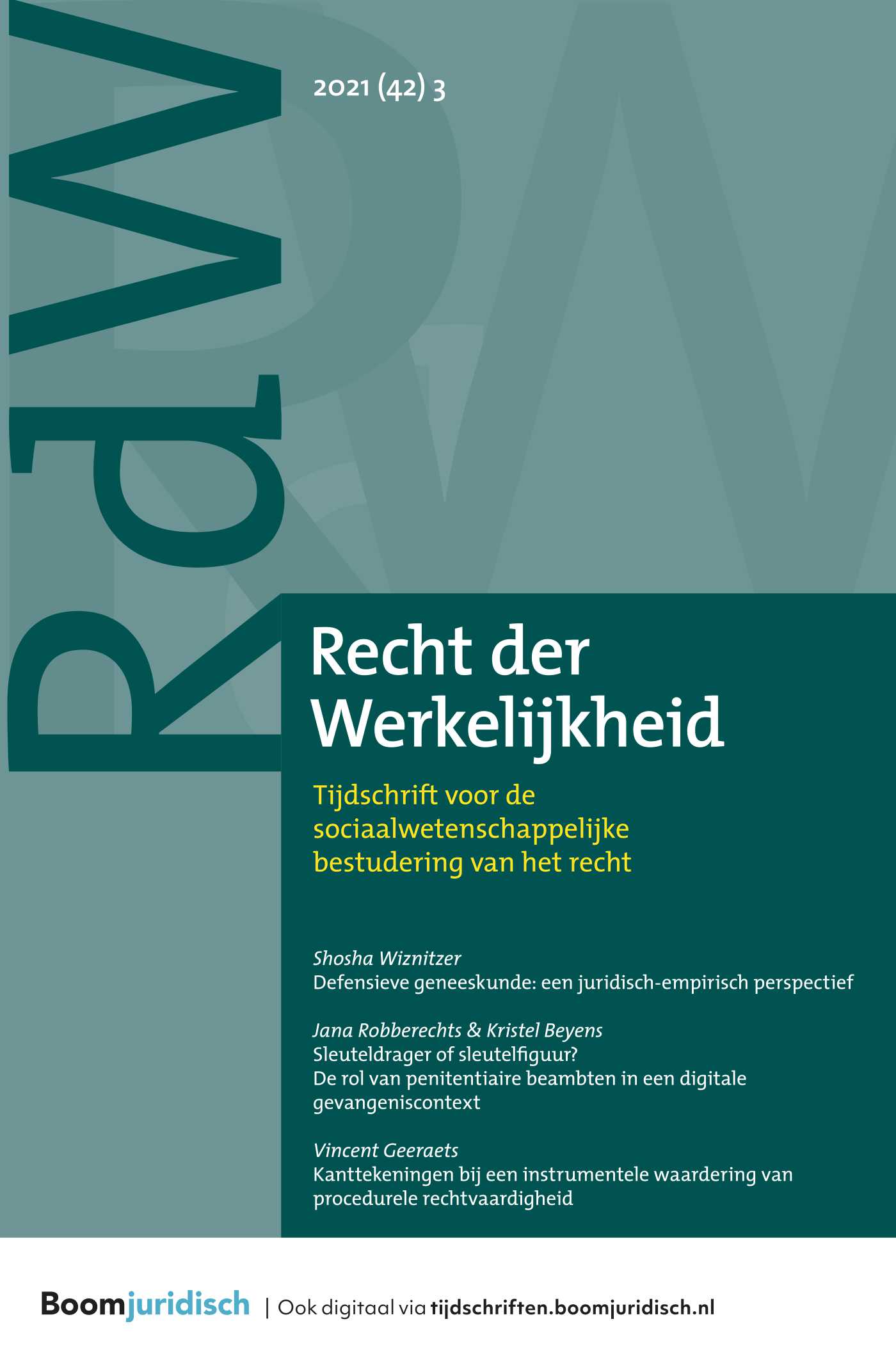|
There is a growing European trend toward the adoption of consent-based definitions of rape. A number of countries recently reformed their rape law or are in the process of doing so, thus raising questions about the way consent is understood as well as the motivations that are provided for such reforms. This article focuses on the Netherlands where the reform process is ongoing. It provides a close-reading of the preparatory documents and finds that (1) legislators initially motivated the reform to ‘lower the threshold’ for the prosecution, but the frame of the threshold recedes to the background as the objective of the reform shifts and the definition of consent widens; (2) the shift of ‘social norm’ regarding unwanted sex is both the main justification and key goal of legal reform, and (3) the new law introduces negligent crime for rape and sexual assault and discussion centres on mental state. |


Recht der Werkelijkheid
Meer op het gebied van Algemeen
Over dit tijdschriftMeld u zich hier aan voor de attendering op dit tijdschrift zodat u direct een mail ontvangt als er een nieuw digitaal nummer is verschenen en u de artikelen online kunt lezen.
| Redactioneel |
|
| Auteurs | Nienke Doornbos |
| Auteursinformatie |
| Artikel |
|
| Trefwoorden | rape, sexual consent, the Netherlands, sexual violence, criminal law |
| Auteurs | Hoko Horii en Annelien Bouland |
| SamenvattingAuteursinformatie |
| Artikel |
Sentencing with(out) Forensic Mental Health Information |
| Trefwoorden | forensic mental health report, sentencing, mental disorder, recidivism risk, the Netherlands |
| Auteurs | Roosmarijn van Es, Jan de Keijser, Janne van Doorn e.a. |
| SamenvattingAuteursinformatie |
|
In the Netherlands, a pretrial forensic mental health report (FMHR) can be requested to inform the court whether a mental disorder was present at the time of the offense, whether this disorder affected behaviour and decision-making at the time of the offense, how this disorder may affect future behaviour and advise on possible treatment measures. However, a substantial number of defendants refuse to cooperate with FMHRs to avoid being sentenced to a forensic psychiatric hospital for at least two years (TBS). With an experimental vignette study among law and criminology students (N = 355), we tested whether TBS is less likely for an uncooperative defendant than for a cooperative defendant. Second, we tested whether an uncooperative defendant receives a longer prison sentence when TBS is not imposed. Results showed that refusing to cooperate reduces the likelihood of a TBS measure and that this is compensated by a slightly longer prison sentence. Extending international research, we explored whether type of disorder and recidivism risk in an FMHR had an effect on sentencing. Results show that schizophrenia led to TBS more often than antisocial personality disorder regardless of recidivism risk. Type of disorder or recidivism risk did not substantially affect the prison sentence regardless of whether TBS had been imposed. Recommendations for research and practice are discussed. |
| Artikel |
Recht spreken én schrijvenHoe (on)tevredenheid over de communicatie de acceptatie van de rechterlijke beslissing beïnvloedt |
| Trefwoorden | perceived outcome fairness, interpersonal justice, informational justice, justification in judicial decisions, interactional justice |
| Auteurs | Geerke van der Bruggen, Henk Pander Maat en Leonie van Lent |
| SamenvattingAuteursinformatie |
|
There is a growing interest in judicial communication – i.e. the interaction of judges with parties in court and the communicative quality of (written) judicial decisions. The aim of our research was to find out more about the role of these communicative aspects, specifically of specific text elements in judicial decisions, in outcome justice judgments of – different types of – litigating parties. |
| Forum |
Maatwerk is niet in strijd met het gelijkheidsbeginsel |
| Auteurs | Ashley Terlouw |
| Auteursinformatie |
| Forum |
De verzorgingsstaat als dystopie moet worden bestreden met zwaarder geschut dan maatwerk |
| Auteurs | Gijsbert Vonk |
| Auteursinformatie |
| Recensies en signalementen |
Methoden van rechtswetenschappelijk onderzoek – een herziene uitgave |
| Auteurs | Marijke ter Voert |
| Auteursinformatie |
| Recensies en signalementen |
Pakkansen, procedures en percepties als routes naar naleving in het verkeer |
| Auteurs | Lisa Ansems |
| Auteursinformatie |
| Werk in uitvoering |
Shadowboxing: legal mobilization and the marginalization of race in the Dutch metropole |
| Auteurs | Alison Fischer |
| Auteursinformatie |

